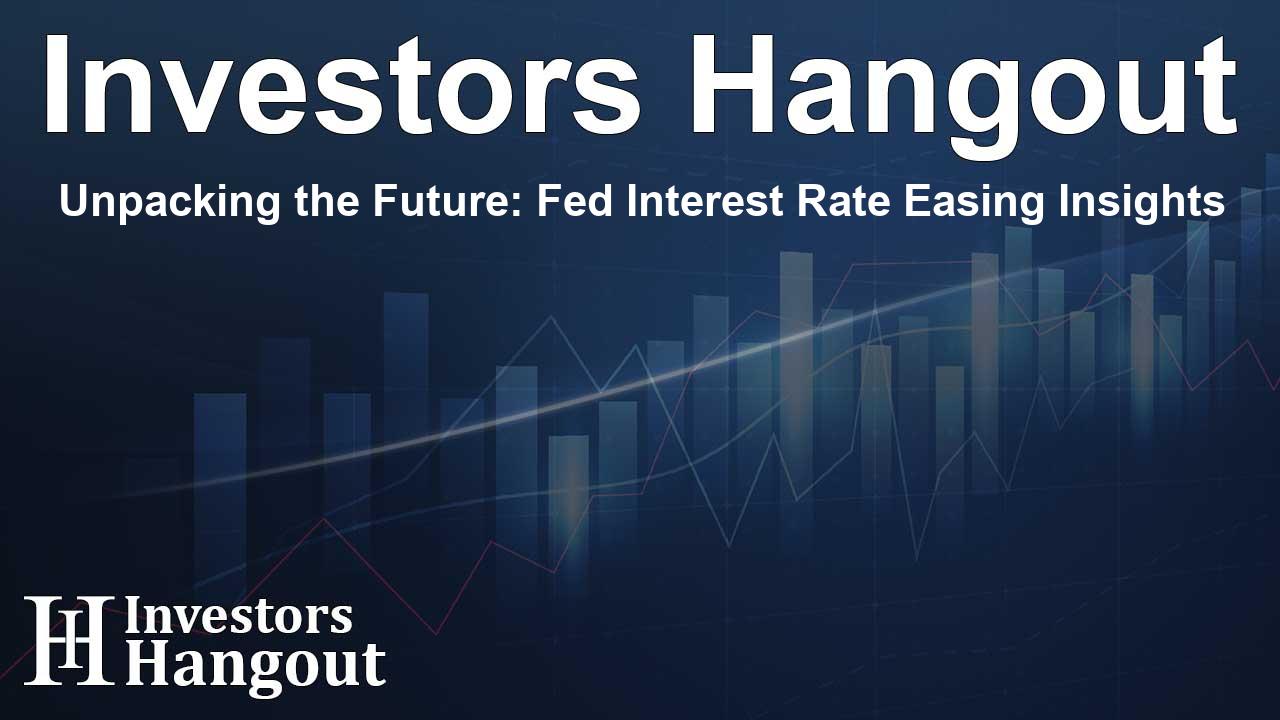Unpacking the Future: Fed Interest Rate Easing Insights

Understanding the Shift in Interest Rates
The recent discussions surrounding interest rates have drawn attention to the Federal Reserve's actions and their impacts on the economy. Despite significant rate hikes over the past couple of years, questions arise about how these changes influence both growth and market stability.
The Resilience of the U.S. Economy
Interestingly, after five percentage points of tightening by the Federal Reserve, the U.S. economy continued to demonstrate resilience. Annualized growth rates exceeding 2% were noted in seven out of the eight quarters following mid-2022, indicating a robust economic environment.
Growth Amid Tightening
Even as borrowing costs increased, the stock market remained near record highs. This resilience suggests that the economy might have adapted to the shifts in short-term borrowing costs. Investors and policymakers alike are left questioning whether monetary policy can effectively respond to a potential economic slowdown.
Theories Behind Economic Resilience
Several theories attempt to explain the economy's immunity to high interest rates. The behavioral changes prompted by the COVID-19 pandemic, the prevalence of fixed-rate debt, and the large reserves of corporate cash contribute to this economic landscape. Household savings, coupled with strategic government spending, played significant roles prior to the tightening period.
Corporate Cash Flows and Interest Payments
Perhaps the most striking factor is the recent statistic from the International Monetary Fund, which indicated that U.S. firms' net interest payments as a share of GDP decreased during the tightening cycle. Moreover, the ratio of net interest payments to cash flow for these firms has hit lows not seen in nearly 70 years. This dynamic plays a crucial role in understanding corporate financial health amid rate changes.
Future Implications of Rate Easing
As the Federal Reserve appears poised to ease rates, analysts are advocating for caution. The earlier economic activity suggests that a significant reduction in rates might be necessary to invigorate the economy should a recession materialize. However, others argue that the effects of previous higher rates may take time to manifest, potentially leading to a lag in cash flow and spending.
Investor Perspective on Corporate Borrowing
Despite the pressures of refinancing existing debts at higher rates, corporate borrowers seem increasingly capable of managing these transitions. Recent reports illustrate robust activity in the debt markets, with record-breaking sales indicating strong investor confidence.
Analyzing the Fed's Strategy
As uncertainties surrounding the effects of monetary policy loom, experts like Yves Bonzon emphasize the need for the Fed to be cautious. The dichotomy lies in whether the Fed's moves are preventive measures for an impending recession or strategic adjustments to align with more favorable inflation rates.
The Impact of Fed Decisions on the Market
The possibility of drastic measures by the Fed raises concerns. If rate cuts are viewed merely as normalization, higher terminal rates may result, which could stabilize the current credit spreads. Ultimately, investors should remain vigilant as the economic narrative unfolds.
Looking Ahead: An Uncertain Economic Climate
In summary, the interplay between interest rates and economic performance presents a compelling yet complex narrative. Stakeholders must grapple with the realities of how financial policies may influence market behavior moving forward. Investors should brace for a volatile landscape as the Federal Reserve navigates these tumultuous waters.
Frequently Asked Questions
What factors contributed to the resilience of the U.S. economy?
The combination of fixed-rate debt, high corporate cash levels, and strategic government spending has helped maintain economic stability despite rate increases.
How do interest rates impact corporate borrowing?
Corporate borrowers have shown adaptability in managing refinancing at higher rates, evidenced by robust debt issuance in recent weeks.
What is the potential effect of the Fed's interest rate easing?
If the Fed eases rates significantly, it may stimulate credit growth and affect asset prices, which could lead to an economic boom if not carefully managed.
Are current economic conditions indicative of an upcoming recession?
Current indicators show mixed signals, leading to debates among analysts about whether the Fed is reacting to signs of recession or merely adjusting to inflation trends.
What should investors expect in the near future?
Investors should prepare for increased volatility and nuanced responses from the market as the Fed evaluates its strategies in response to ongoing economic shifts.
About The Author
Contact Addison Perry privately here. Or send an email with ATTN: Addison Perry as the subject to contact@investorshangout.com.
About Investors Hangout
Investors Hangout is a leading online stock forum for financial discussion and learning, offering a wide range of free tools and resources. It draws in traders of all levels, who exchange market knowledge, investigate trading tactics, and keep an eye on industry developments in real time. Featuring financial articles, stock message boards, quotes, charts, company profiles, and live news updates. Through cooperative learning and a wealth of informational resources, it helps users from novices creating their first portfolios to experts honing their techniques. Join Investors Hangout today: https://investorshangout.com/
The content of this article is based on factual, publicly available information and does not represent legal, financial, or investment advice. Investors Hangout does not offer financial advice, and the author is not a licensed financial advisor. Consult a qualified advisor before making any financial or investment decisions based on this article. This article should not be considered advice to purchase, sell, or hold any securities or other investments. If any of the material provided here is inaccurate, please contact us for corrections.
